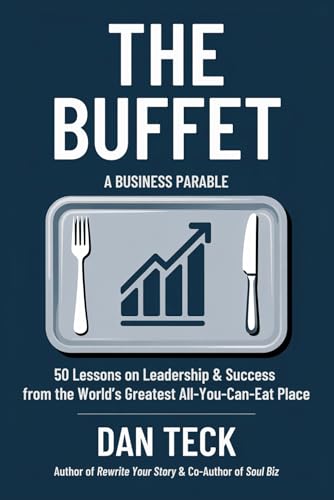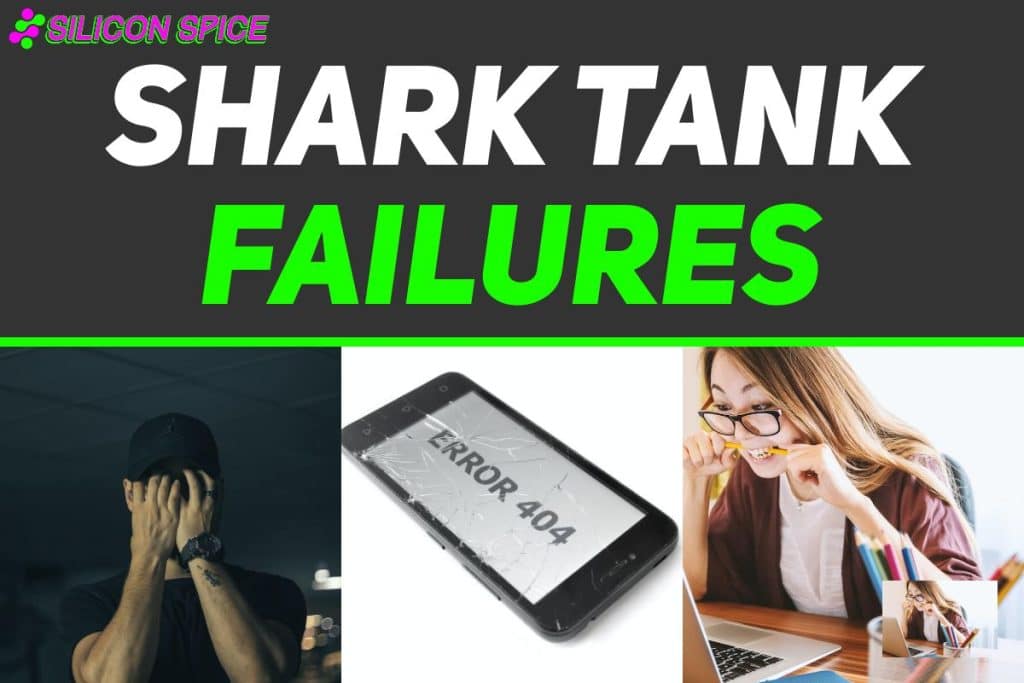Best Marketing Books for Beginners: Your Guide to Starting Strong
Venturing into the world of marketing can be as thrilling as it is daunting, particularly for beginners looking for their bearings in a dynamic landscape. With the right resources, we can cut through the noise and lay a solid foundation of knowledge. Marketing books specifically designed for beginners offer a wealth of information, presenting complex concepts in digestible formats and actionable strategies that directly apply to real-world situations. From understanding consumer behavior to mastering digital platforms, these books serve as invaluable guides on our learning journey.

Our initiation into marketing begins with grasping the essentials: the 4 Ps (Product, Price, Place, Promotion), market research, and audience segmentation. As we build on these fundamentals, the focus shifts to digital marketing, which encompasses a range of skills including SEO, social media management, and content creation. We must also consider the evolving nature of marketing; staying current with innovative strategies is as important as learning the basics. To further our knowledge and expertise, we delve into a curated selection of books that promise to arm us with the tools necessary for a successful marketing career.
Key Takeaways
- Books tailored for beginners are pivotal to mastering marketing fundamentals and advanced concepts.
- The landscape of digital marketing requires continuous learning and adaptation.
- A blend of timeless strategies and modern techniques is key to developing a robust marketing skill set.
Understanding Marketing Fundamentals
Before we dive into the specific subsections, it’s important to know that marketing fundamentals are the cornerstone of successful campaigns. From the psychology that motivates consumer behavior to the platforms like social media where we connect with our audience, every aspect is pivotal.
Introduction to Marketing Concepts
Let’s start with the basics. In marketing, we’re always looking for the most effective strategies to communicate value and build connections with our customers. We focus on content marketing and advertising to create compelling narratives around our products and services. By delivering the right message to the right audience, we aim to convert interest into action.
Exploring Different Marketing Strategies
As we navigate the marketing world, our strategy is key. Whether it’s a targeted social media marketing campaign or a broader content strategy, the approach must align with our goals and audience needs. Here’s a brief rundown:
- Social Media Marketing: Engage with customers where they spend their time.
- Content Marketing: Educate and entertain to build brand loyalty.
- Advertising: Capture attention and prompt immediate action.
Each of these strategies has its place in our marketing toolbox, and we often use them in combination to maximize their impact.
The Role of Psychology in Marketing
Understanding the psychology behind consumer behavior is like having a roadmap to our customers’ minds. It’s about knowing what triggers a decision and how emotions influence purchasing habits. Here are some insights:
- Consumers often make decisions based on emotions, then justify with logic.
- Social proof, like reviews and testimonials, can significantly sway buyer opinions.
By incorporating psychological principles into our strategies, we can craft marketing messages that resonate more deeply with our audience.
The Digital Marketing Landscape

We’re witnessing an incredible evolution where technology meets creativity in the digital marketing landscape. Here’s our concise exploration into the tactics that are shaping the way we engage with audiences in the digital age.
Embracing Digital and Social Media Marketing
We see enormous potential in blending digital strategy with social media to reach wider demographics. It’s not just about posting content; it’s about fostering engagement and community building. Social platforms offer us tools to refine targeting and personalize the online marketing experience, ensuring that we’re not just seen, but also heard and felt. For instance, TikTok ads can greatly boost business.
Leveraging SEO and Content Marketing
In harnessing SEO and content marketing, we focus on creating valuable content that organically climbs search engine rankings. Bullet points, tables, and infographics work effectively to convey clear, concise information. We’ve learned that:
- Quality over quantity wins in SEO.
- Understanding and integrating trending keywords is pivotal to visibility.
For example, utilizing tools, such as Google’s Keyword Planner, has become fundamental for us to optimize our content for our target audience.
Analytics and Measuring Success
Finally, we embrace analytics as our compass for measuring success. By analyzing data, we tap into insights that inform our digital strategies, allowing us to adjust and optimize in real-time. Technology like Google Analytics presents us with a rich array of metrics, from page views to conversion rates, ensuring we understand the effectiveness of our campaigns. This ability to measure tangible results defines online marketing in the digital age.
Developing Essential Marketing Skills

Before we dive into the specifics, it’s important to note that developing essential marketing skills involves a focused approach to strategy, content, and branding communication. We’ll explore these foundational pillars to ensure your marketing efforts pay off.
Building a Strong Marketing Strategy
In our journey to build robust marketing strategies, we begin by understanding our market and setting clear, achievable goals. It’s about mapping out a path that is both strategic and data-driven to reach our audience effectively. For instance, reading books like “The Art of Social Media” can provide us with insights on social media strategy, crucial in today’s digital landscape.
Creating Compelling Content
Our ability to craft engaging content is critical in capturing the attention of our target audience. This is where content creation and storytelling play vital roles. We must be adept at not just telling a story, but doing so in a way that resonates with and is memorable to our audience. To enhance our content creation skills, we look at books like “Jab, Jab, Jab, Right Hook” that guide on delivering value before making an ask.
Effective Brand Communication
Finally, our brand communication must embody clarity and consistency across all channels. This means our messaging needs to be cohesive, reflecting our brand’s core values and promise. To refine our skills in this area, absorbing knowledge from marketing experts who have successfully navigated the branding landscape is invaluable. This knowledge not only aids in our understanding of branding but also in our ability to communicate effectively within the market.
Innovative Marketing in The Modern Era

In our exploration of innovative marketing today, we’ll uncover how AI is revolutionizing strategies, the significant role of data and technology, and predict what’s on the horizon for marketers.
Incorporating AI in Marketing
AI has become a cornerstone in marketing automation. Our campaigns are now more intelligent, with AI-powered tools like chatbots and personalized recommendation engines becoming standard. They allow us to tailor our approach to each customer, often with real-time adjustments that can significantly increase engagement and conversion rates.
The Impact of Data and Technology
Data, when used wisely, informs us on everything from consumer behavior to campaign performance. Our access to big data, combined with advanced analytic tools, helps us make informed decisions about where to allocate our marketing budget for the highest ROI. Technologies like CRM systems and marketing automation software are not just optional; they’re requisite in our digital marketing toolkit.
Future Trends and Predictive Planning
Moving forward, we’re seeing an uptrend in predictive analytics. This form of advanced analysis can help us forecast future marketing trends and consumer needs. By incorporating these insights into our planning, we can create strategies that not only respond to current markets but also anticipate and lead in new directions, ensuring we’re always one step ahead.
Marketing Books and Resources

We have carefully curated a selection of books and resources that are perfect for anyone starting out in marketing as well as those looking to deepen their knowledge with more advanced material. Our focus on this comprehensive toolkit is to make sure we arm you with practical reads and online tools.
Essential Reads for Beginners
For us beginners, getting a solid grasp of marketing fundamentals is key. One of the most recommended titles is “The Art of Social Media” by Guy Kawasaki and Peg Fitzpatrick, which offers a wealth of knowledge on utilizing social media effectively. Additionally, the timeless strategies presented in “Kotler on Marketing” by Philip Kotler can be your stepping stone to understanding the core concepts of marketing.
- Books:
- The Art of Social Media by Guy Kawasaki and Peg Fitzpatrick
- Kotler on Marketing by Philip Kotler
Advancing with Intermediate Materials
Once we’ve nailed down the basics, it’s crucial we further our learning. A must-read for us at this stage is “Jab, Jab, Jab, Right Hook” by Gary Vaynerchuk, which provides insightful strategies for making significant impacts in digital marketing. Additionally, we can expand our skill set by diving into “Salesforce for Beginners,” which guides us through creating and automating sales processes, enhancing our technical marketing expertise.
- Books:
- Jab, Jab, Jab, Right Hook by Gary Vaynerchuk
- Salesforce for Beginners by Sharif Shaalan
Online Resources and Tools
We don’t just stop at books—online resources and tools are integral to our marketing success. Websites like Niche Pursuits and UpJourney provide us with expert insights and tips to stay updated in the ever-evolving marketing landscape. They help us to utilize analytics and sales techniques effectively, giving us a competitive edge.
- Online Tools:
- Niche Pursuits
- UpJourney
by utilizing these resources, we can ensure that our marketing knowledge remains current and comprehensive.
Practical Application of Marketing Theories
When we explore marketing theories, it’s crucial to understand how these concepts are applied in real-world scenarios. This is where the practical application comes into play, allowing us to see the tangible benefits of strategic planning and continual learning.
Case Studies and Real-World Examples
Case studies serve as a powerful tool to demonstrate marketing strategies in action. They detail how companies have effectively applied tactics to achieve their goals, offering us insights into successful and sometimes unsuccessful campaigns. By examining these real-world examples, we can learn from others’ experiences, understand the nuances of strategy implementation, and anticipate potential challenges. Books like The Art of Social Media show us through various scenarios how marketing theories translate into everyday social media efforts.
Applying Tactics to Your Marketing Plan
The theories we study provide a backbone for our marketing strategies, but the tactics are the muscle that moves the plan into action. When applying tactics to your marketing plan, start with a clear understanding of your objectives and audience. From here, use a mix of tried-and-true methods and innovative approaches—such as those outlined in works like Positioning: The Battle for Your Mind—to craft messages that resonate and convert.
Continual Learning and Skill Enhancement
Our journey in marketing doesn’t end with a single campaign or study. The field is ever-evolving, and so must our skills. Continual learning through books, online courses, and other resources is essential to stay on top of current and emerging trends. Commit to enhancing your skills and knowledge base, as recommended in The 4 best marketing strategy books for beginners, to ensure that our strategies remain effective and our tactics innovative. Remember, learning is a cycle of developing, applying, and reflecting that helps us grow as marketers.
Building a Marketing Career
In our journey through the world of marketing, it’s vital for us to grasp the roots of the industry, recognize the various career trajectories available, and understand the significance of networking and personal branding.
Understanding the Marketing Industry
The marketing industry is diverse and rapidly evolving, embracing digital realms and traditional platforms alike. To excel, we need to stay informed about current trends and innovative strategies. Books like “This Is Marketing” by Seth Godin can be instrumental in shaping our foundational understanding of how marketing works and what it aims to achieve.
Career Paths and Progression
As we navigate our careers, the routes are numerous: from digital marketing specialists to brand managers. Each role requires a tailored set of skills and knowledge. A well-regarded guide for structuring a strategic approach to our marketing career is “The 1-Page Marketing Plan” which can help us outline clear steps for our progression and success.
Common Career Paths in Marketing:
- Entry-Level: Marketing Coordinator, SEO Assistant
- Mid-Level: Brand Strategist, Marketing Analyst
- Senior-Level: Marketing Director, Chief Marketing Officer
Networking and Personal Branding
Building a strong personal brand and a robust professional network are cornerstones of a successful marketing career. Engaging with peers through platforms like LinkedIn and attending industry events can help us form valuable connections. Books such as “The Art of Social Media” by Guy Kawasaki offer insights on leveraging social media for professional networking and branding, enabling us to present the best version of ourselves.
Specialized Marketing Disciplines
In the evolving landscape of marketing, specialization is key to effectively reach and communicate with your audience. We’ll examine how niche marketing zeroes in on specific target audiences, the dynamics of influencer and affiliate marketing partnerships, and the importance of cultivating authenticity and ethics in marketing practices.
Niche Marketing and Target Audiences
We understand that niche marketing is all about specializing—it focuses on a distinct segment of the market, catering to a specific kind of customer with tailored offerings. When we consider niche marketing, we look for books that dissect methods of identifying and understanding a target audience, enabling us to create more impactful marketing strategies that resonate deeply.
Recommended resources:
- Niche Marketing Techniques
- Crafting Customer Personas
Influencer and Affiliate Marketing
Influencer and affiliate marketing are rooted in leveraging the credibility and reach of individuals who possess a significant online presence. We seek guides that teach us how to forge and maintain mutually beneficial relationships with influencers, and how to structure affiliate programs that align with both our brand’s ethos and the interests of potential affiliates.
Notable guides:
- The Art of Social Media
- Crafting Affiliate Agreements
Ethics and Authentic Marketing
Authenticity and ethics in marketing not only foster trust but also build long-lasting customer relationships. We’re interested in books that encourage ethical practices and spotlight the necessity of maintaining an authentic voice amidst promotional efforts. This ensures that our brand integrity remains intact and customer loyalty is strengthened.
Essential reads:
- Authentic Marketing Strategies
- Ethical Marketing Frameworks
Frequently Asked Questions
In this section, we’ll guide you through some of the top picks for marketing books tailored for beginners. These books cover fundamental concepts and strategies essential for anyone starting in the marketing field.
What are some must-read books for someone just starting out in marketing?
We recommend starting with “This Is Marketing” by Seth Godin. It’s a comprehensive guide that challenges conventional marketing wisdom and provides a fresh perspective on creating value and making an impact.
Can you recommend beginner-friendly marketing books that every new marketer should read?
Yes, “The 1-Page Marketing Plan” by Allan Dib is ideal for grasping the basics of marketing strategies in a simple and actionable manner.
What are the essential marketing books for entrepreneurs looking to boost their business?
Entrepreneurs should not miss “The Lean Startup” by Eric Ries, which discusses innovative approaches to business and marketing that can help you rapidly adapt to changing market demands.
Which marketing books offer the most valuable insights and strategies for newbies?
“Jab, Jab, Jab, Right Hook” by Gary Vaynerchuk is an excellent read for understanding how to connect with customers and stand out on social media platforms.
What are the latest marketing books that are great for beginners to learn from?
The landscape of marketing continuously evolves, and “The Art of Social Media” by Guy Kawasaki and Peg Fitzpatrick is a contemporary guide on effectively using social media for marketing purposes.
How can a complete novice in marketing educate themselves through books?
By starting with foundational books like “The Tipping Point” by Malcolm Gladwell, a novice can understand how small actions can lead to significant changes in the market, which is a vital aspect of marketing.










